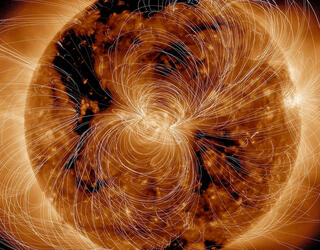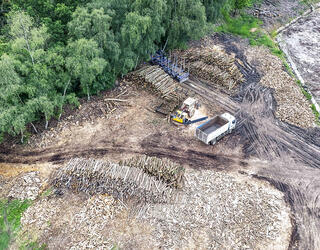Manufactured primarily in England and France starting in the early 18th century, pianos were massively exported, in particular to the Americas, leading to the emergence of new repertoires. This is the amazing story of an instrument that has crossed oceans, social classes and musical styles.
Article
02.10.2026
Albeit little-known, plant microbiota or holobionts are essential for plant health and sustainable agriculture. The work of Philippe Vandenkoornhuyse in discovering their role has earned this CNRS ecologist international recognition.
Article
01.28.2026
In the Middle Ages, sugar was praised for its therapeutic benefits, whereas melon was long considered harmful! The mediaevalist and food specialist Bruno Laurioux recounts the history of the eternal quest for a healthful diet, from antiquity to the present...
Article
01.23.2026
Our topics
Article
11.24.2025
Given that animals are sentient, as established by recent research, what is their attitude towards death? In a recently-published book, the biologist Emmanuelle Pouydebat sheds light on the complex...
11.09.2025
In 2015, the historic Paris Agreement, signed by 195 countries, sought to limit global warming to 2 °C. Ten years later, the results have yet to materialise, raising questions regarding the...
Article
11.03.2025
On 14 September, 2015, the international LIGO/Virgo collaboration detected the very first gravitational wave signal, a tiny distortion of spacetime predicted by Einstein, in this case produced by the...
Article
10.28.2025
In the French-Belgian film "The Residence", recently released in a number of European countries and Brazil, a novelist interacts with an artificial intelligence system. The robotics...
Article
10.27.2025
In August 2025, the Geneva Summit on plastic pollution once again failed to reach agreement on an international treaty, due in particular to a lack of consensus over recycling and its limits. This...
Article
10.22.2025
The huge fires that burn down millions of hectares of forest in North America every year have an impact on the other side of the Atlantic. Plumes of smoke and various other pollutants have been...
Article
10.20.2025
The myth of Africa as a wild, enchanting continent conceals a reality of nature under glass orchestrated by Western experts, to the detriment of local populations. The historian Guillaume Blanc...
Article
10.15.2025
A previously unpublished sonnet by Cervantes, recently discovered in an account of Neapolitan festivals, reveals the exceptional socio-professional status of the author of "Don Quixote" in...
Article
10.09.2025
Why is the outermost part of the Sun's atmosphere, the corona, so much hotter than its surface? Ten years after formulating a hypothesis based on a numerical model, CNRS researchers have now...
Article
10.03.2025
The concept of an “energy transition” is misleading, states the CNRS science historian Jean-Baptiste Fressoz. He explains why coal and oil never replaced wood, and that the fight against climate...
Article
09.29.2025
Oil isn't the only treasure hidden in the Arabian desert. French-Saudi archaeological teams are gradually unearthing a hitherto unsuspected heritage, including urban development, languages,...
Article
09.24.2025
Due to global warming and ever greater human activity, phytoplankton blooms are becoming increasingly frequent in lakes and oceans. Their impact on health, the economy and the environment is already...




















